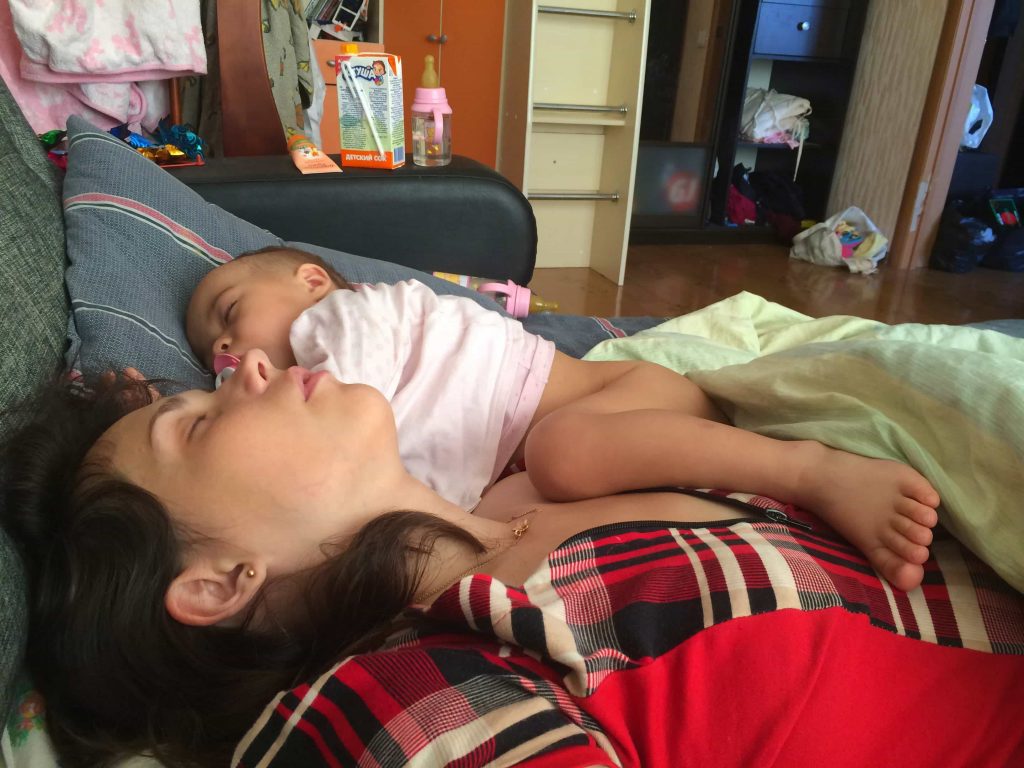About a dream, or rather about its absence

Today is the time to write about a dream, or rather, about its absence. Yesterday, my daughter woke up at 4 a.m. simply because she had a good night’s sleep. In the evening she fell asleep at 19 and at 23 woke up peppy and full of strength. I can not say the same about myself. In the chat of our kindergarten group (I remind you that our group has a “Special Child”) very often flicker messages that the child got up early or did not sleep at night and will not come to the garden today. Alice is not unique in this situation.
In the struggle for a long, peaceful sleep, many parents just don’t try (they order melotonin, undergo an acupuncture course, carefully observe the rituals at bedtime, organize evening walks and much more). This struggle is difficult and often ends in complete parental failure. As, once, the psychologist explained to us, to which we brought Alice for a consultation, children with autism (perhaps even wider, with autistic features) spend very little emotions during the day, they do not react so brightly to everything that happens, they seem to be inside themselves and therefore they need much less energy to recover. I do not presume to say that this is the only true explanation, but to me it seems quite logical.
Of course, if we compare the situation with sleep 3-4 years ago, now we just have a fairy tale! Alice used to wake up at night almost regularly, of the seven days of the week, probably five passed without sleep. And, of course, a child who is two years old and who does not sleep requires much more attention than one who does not sleep at 6 years old. In the morning we drove Alice to grandparents, and drove to work ourselves. In the afternoon she could sleep 3-4 hours, but still 8 hours a day for a two-year-old child is not enough. I slept for 3-4 hours a day and this is on a regular basis. How did I have enough strength then? I have no idea. Then I thought that this was a normal situation and young children very often sleep poorly at night. In fact, this was one of the symptoms of our diagnosis.
When did the situation change? We moved to Anapa when Alice was 4, 5 years old. Here she lost her daytime sleep. She stopped sleeping during the day and felt fine, but she began to sleep more at night, which could not but rejoice me. I did not fight for daytime sleep, it was evident from her behavior and mood that she was so completely comfortable. After about six months, the sleep returned to normal. I put her to bed at 9 – 10 pm and until 6 – 7 in the morning she slept without incident. I slept well !!! Suddenly, it turned out that I was very tired and that sleeping at night was simply fabulous! During all this time, I turned from an inveterate owl into a lark. Now I am comfortable going to bed early, but getting up from bed at 5-6-7 in the morning I do not feel any inconvenience. Of course, everything is not as perfect as we would like. Sudden night rises still happen, I can not explain why this is still happening. I tried to systematize, but I did not find the logic.
What makes me happy is that she has become independent and now I can sleep peacefully in the next room while she sits at night and collects puzzles or joyfully jumps. If she needs something, she will call me. Of course, this is not the best and sound sleep, but it is much better than before. I really hope and believe that someday these night vigils will sink into oblivion, but for now we rejoice at what is.
I wanted to write about the lack of sleep in the child, but it turned out about the lack of sleep in the parent. I wish you good and sweet dreams! If you have working methods in the fight for a sweet dream, be sure to write.
Comments: